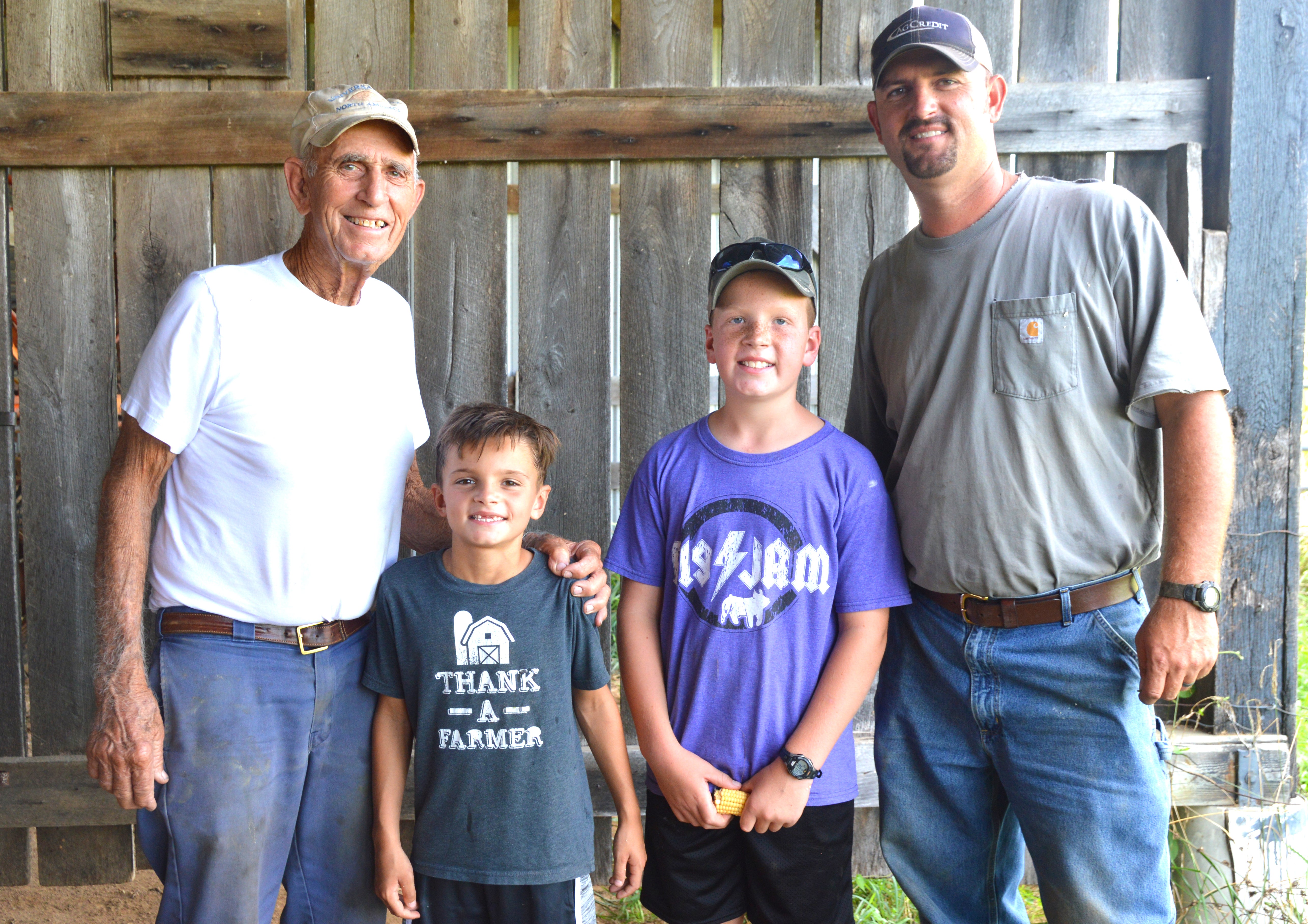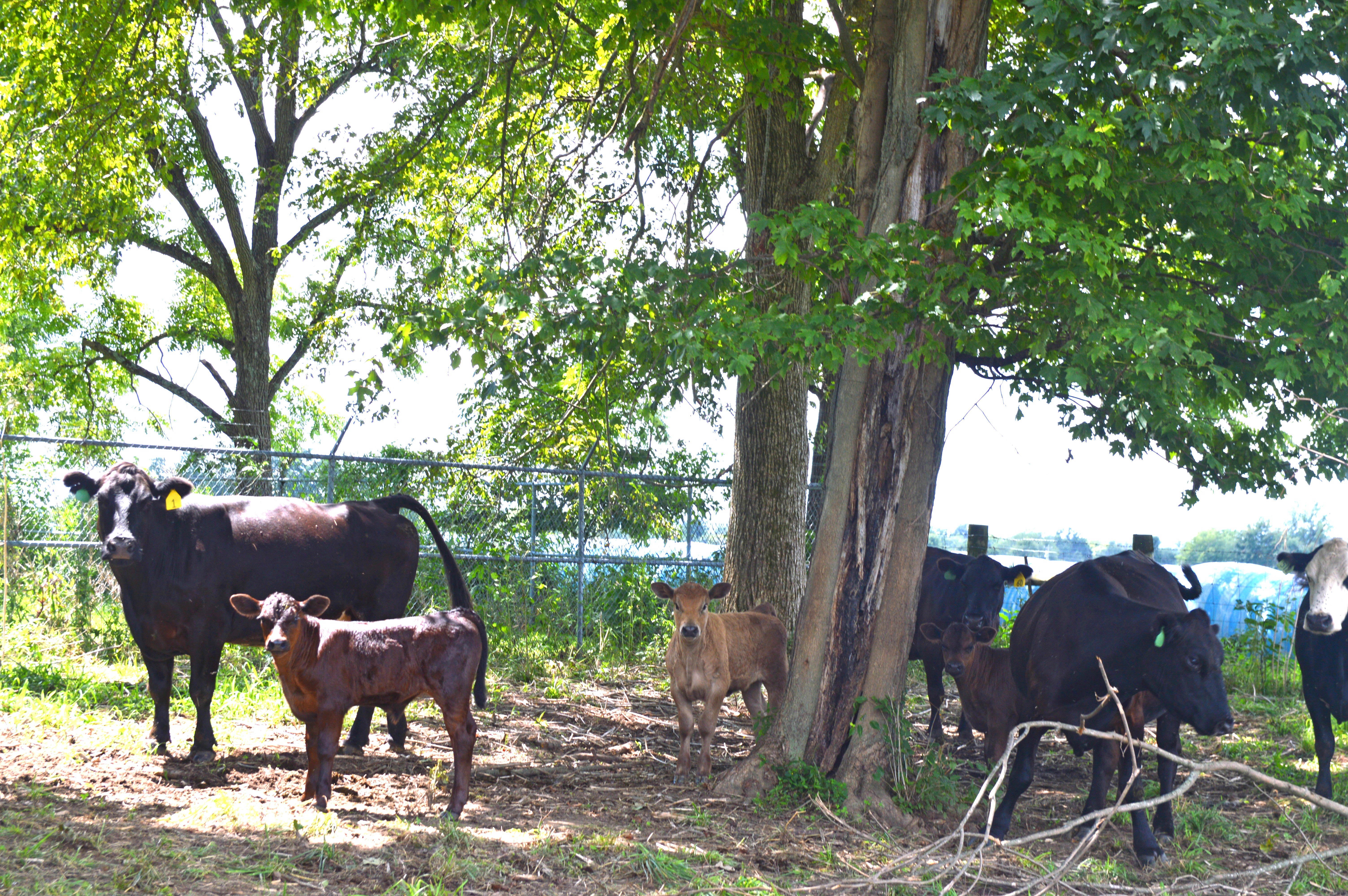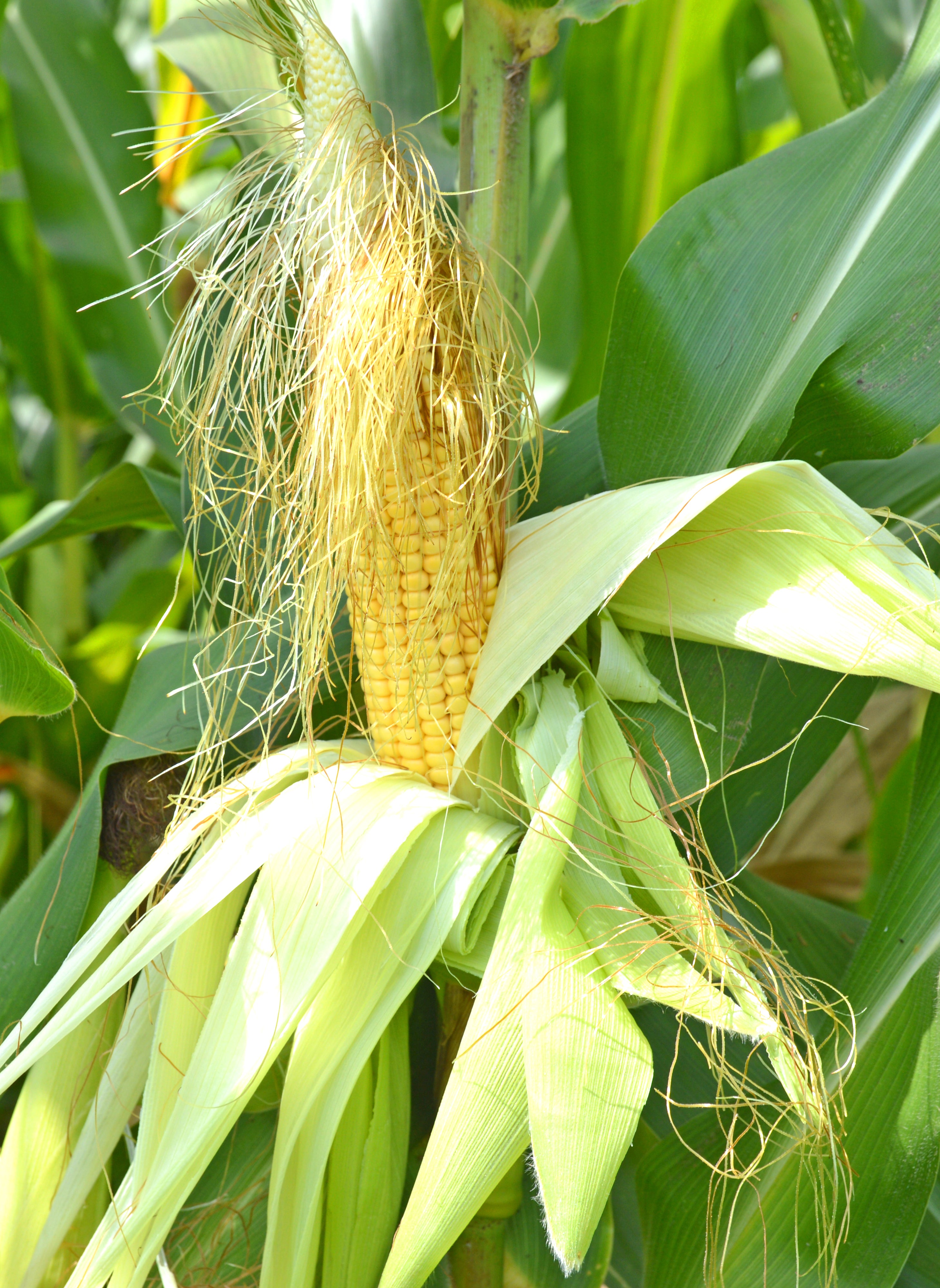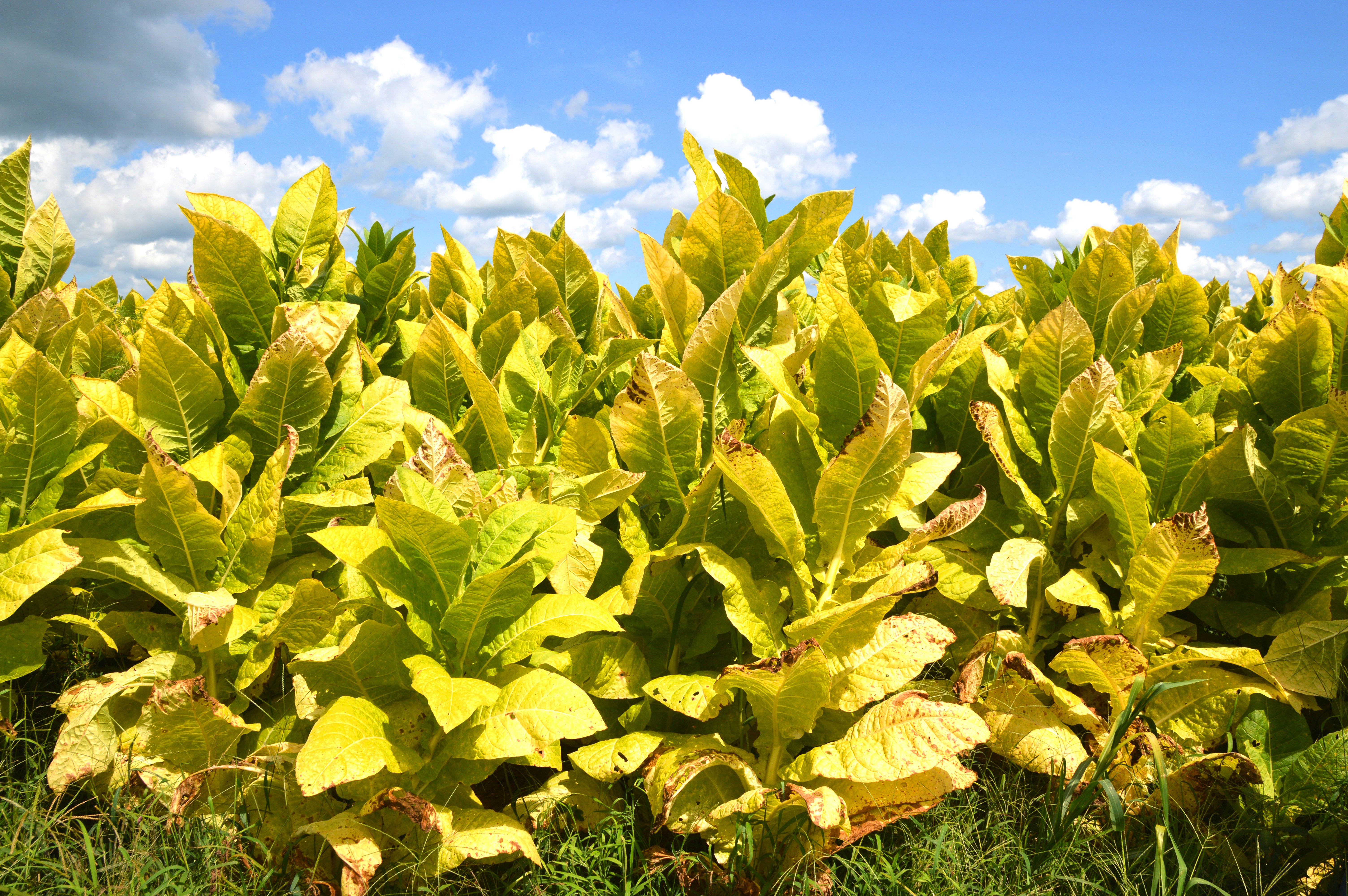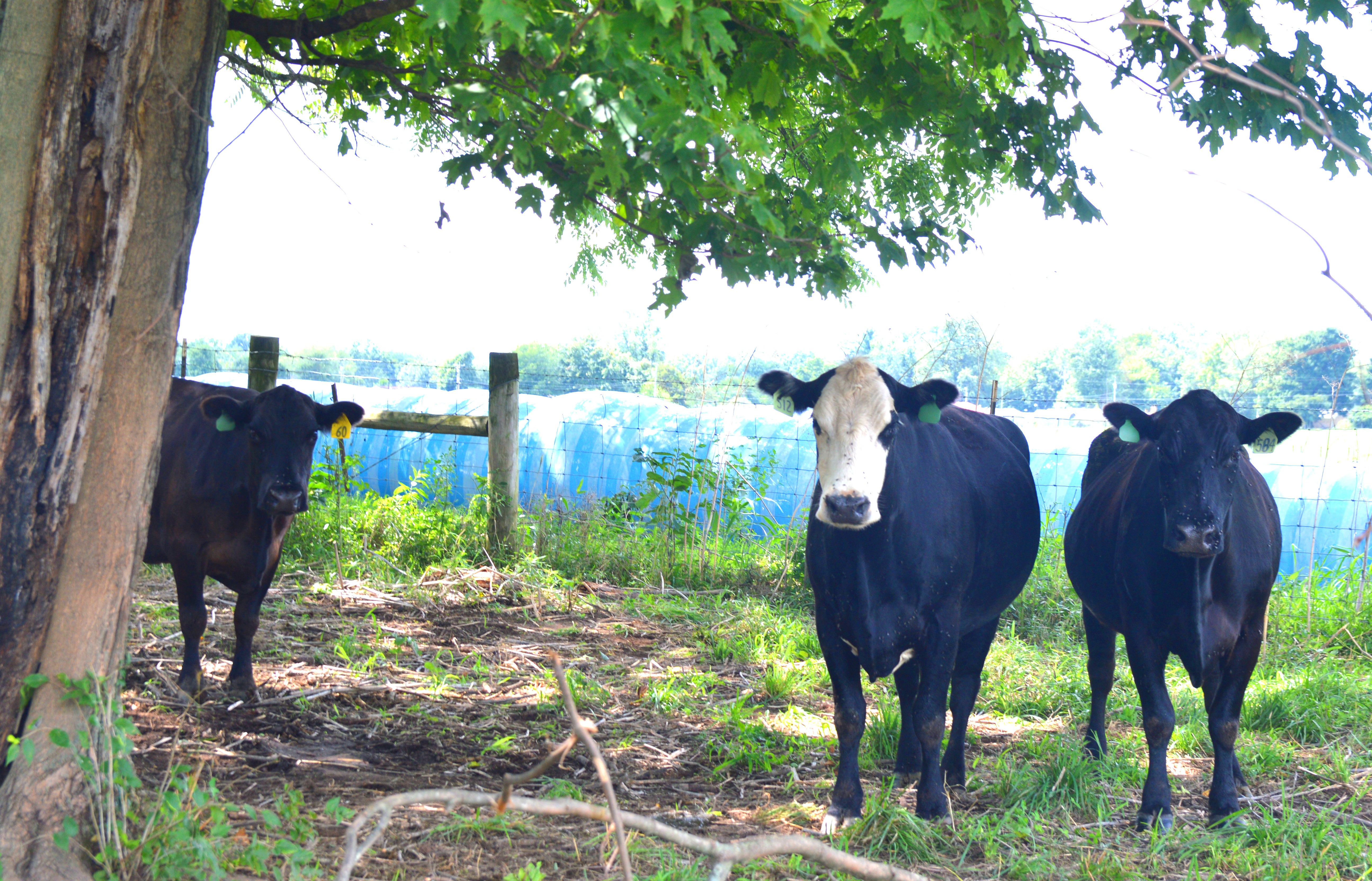‘Everything has a purpose’
Published 3:17 pm Monday, September 20, 2021
For farmers, adaptation and diverse marketing are key
Will Stallard drove his truck around his hilly farm his family has owned since 1992 to show where his cattle were, finding them grazing in a herd in the shade. They raised their heads when the truck pulled up. Some of them were small calves who stayed close to the adults.
“The heart of our farm is built around the beef cattle operation,” he said.
The farm raises and sells mixed-bred cattle, and cattle are also bred on site.
The farm is located on Airport Road. Farm operations also include growing corn, hay and seven acres of tobacco in addition to the beef cattle.
Stallard’s sons Lane, 10, and Zay, 7, help out on the farm. They show pigs and bottle-fed some calves the mothers couldn’t care for. Now that the calves are off the bottle, the boys feed them grain and water them. Lane also helps with mowing, gives the cattle vaccinations if needed and can diagnose some illnesses in the cattle. Both of the boys attend Edna L. Toliver Intermediate School, where Stallard’s wife Meagan is a teacher. Stallard’s full-time job is to farm.
“I think a farm is an awesome place to raise up the next generation, to raise a child,” Stallard said. “And it’s not for everybody to do that, but we’ve been blessed with the opportunity.”
The Stallards live on a farm that’s been in the family for nearly 100 years. It’s located on Gose Pike and was bought by Stallard’s grandfather Tommy Case’s grandfather. The family has both owned and leased land. Stallard and Case do the main day-to-day operations on the farm, and Stallard’s father works at the farm part-time.
Case is nearing 84 years old, but Stallard said he is out in the field every day. That day in August, Case took a tractor out into the fields to spray for cocklebur weeds, which take nutrients away from cattle’s precious resource, grass.
“I’m super proud to be able to share this passion and love for farming that both of us have for it, daily,” Stallard said.
Though farming has been in Stallard’s family for generations, he often finds new ways to adapt. For example, during the pandemic and the meat shortage that followed, Stallard encountered a lot of demand to be a private beef supplier, so one recent development is the farm now privately sells whole, half and quarter beefs.
“That made a difference at home, and that’s also part of the driving force behind us going to selling whole, half and quarter beefs. We had people who were asking, ‘Can we buy beef from you?’” Stallard said.
The farm also does small-scale local processing working with local business Danielle’s Drive-Away Cafe, sold under the title of Stallard Family Farms.
The farm raises more cattle than it sells, so some of the cattle go to stockyards or are sold through private treaty sales.
The farm is blessed with a local market when it comes to its crops, like local distilleries “popping up” in the area and throughout Kentucky, and in a more widespread market, like in Indiana and Ownesboro. For an effective sale, Stallard said the farm looks at timing and price to figure out the best selling option.
“Along with a diverse set of crops, we also have a diverse marketing plan,” he said.
Later, he said, “Everything has a purpose.”
For example, some corn is used as animal feed and some is harvested for grain and sold on the commercial market.
Tyler Miller, an extension agent with agriculture and natural resources in Lincoln County, was part of the conversation with Stallard, said being diverse, innovative and willing to try new things is what is keeping farms alive.
Finding a niche market like Stallard has with beef is helpful. For example, some farms that used to sell tobacco are dabbling into produce, growing fruits, vegetables, pumpkins and flowers on their acres, Miller said.
However, farming is a challenge in terms of competition, Stallard said. A lot of people like the idea of buying local food, but Stallard has found that even if he aligned prices with “big box” stores like Wal-Mart and Kroger, which is difficult, it’s hard to compete with their convenience and prices, and it’s difficult to keep up considering how busy he is with farming operations, driving and other tasks to meet the needs of a generation that expects everything to come with ease, at their fingertips.
“It’s easier for a family to go through those big box stores, and, while they’re grabbing a box of cereal, to go over to the meat counter while they’re there. I’m another stop.”
Later, he said, “The problem is, I can’t compete. I’ve done the numbers. I’ve done the numbers, I’ve run the numbers, and I’m having a hard time — we are having a hard time — competing with some of those prices.”
That being said, the response he’s gotten from customers has been great. Several have reached out on Facebook and privately to compliment the quality of the beef. And the family’s work with Danielle’s Drive-Away Cafe is a big help.
With his personal farming experience for most of his life and background for nearly 10 years as a county extension agent with the University of Kentucky, Stallard has seen a lot change over the years.
“One of the things I think farmers and agriculture business is, is it’s adaptable. We’ve been able to adapt through technology, through plant breeding, and to be able to adapt to changes in our environment. Through agriculture and through technology and crop genetics and breeding, we’ve been able to change the corn plant so we can select parent plants for disease resistance, for yield, for drought tolerance.”
Later, he said, “Basically what we’ve learned through the years is we can adapt to change in climates by doing on-farm research, and I think that’s one place that land grant universities like the University of Kentucky, they’re so good at.
They’re good at talking with producers, finding out what issues they might have, and trying to help those producers overcome those challenges.”
Miller said when farmers buy crops, they have the blessing of being able to buy locally-owned seed and work with globally-recognized seed companies. A farmer in Iowa, for example, will buy corn crop seeds adapted to their local climate, for example, and a Kentucky farmer will do the same for their climate.
“It’s really amazing, if you get to see any behind-the-scenes of these laboratories these companies are using, the scientists that are doing this plant breeding, all the work and the time,” Miller said. “They’re working on corn hybrids years in advance.”
And as an agriculture community, farmers need to dig into their “toolboxes” to manage challenges that arise, Stallard said. For example, “We are seeing some plants that are naturally changing and becoming glyphosate-resistant,” he said. There’s controversy surrounding the use of glyphosate, too.
However, he said, glyphosate, an herbicide, is not an “end-all, be-all” — it’s simply one available tool for farmers.
The agriculture community in Kentucky is far-reaching and diverse, Miller said. Resources available include extension services, specialists, farm service agencies, the natural resource conservation service, cattleman’s associations, the Kentucky beef network and the Kentucky Farm Bureau.
“We’ve got very diverse networking opportunity here in the state,” Miller said.


